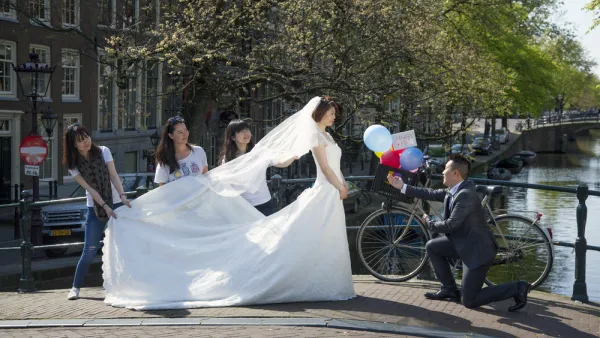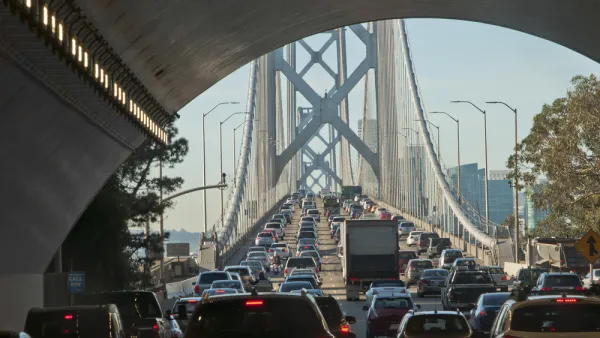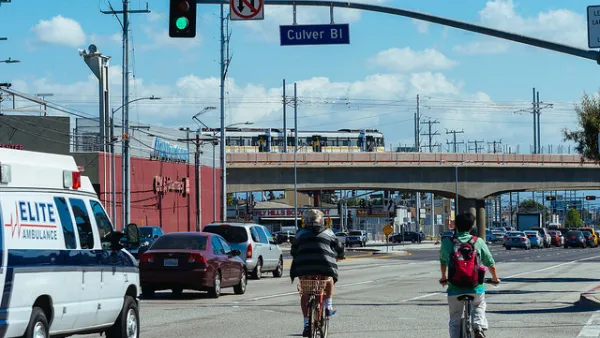Irvin Dawid discovered Planetizen when a classmate in an urban planning lab at San Jose State University shared it with him in 2003. When he left San Jose State that year, he took with him an interest in Planetizen, if not the master's degree in urban & regional planning.
As a long-time environmental activist, he formed the Sustainable Land Use committee for his local Sierra Club chapter and served six years on the Bay Area Air Quality Management District’s Advisory Council from 2002-2008. He maintains his interest in air quality by representing Sierra Club California on the Clean Air Dialogue, a working group of the Calif. Environmental Dialog representing business, regulatory and public health/environmental interests.
Major interests include transportation funding, e.g., gas taxes, vehicle miles traveled (VMT) fees, road tolls and energy subsidies that lead to unlevel playing fields for more sustainable choices.
He hails from Queens (Bayside) and Long Island (Great Neck); received an AAS in Fisheries & Wildlife Technology from SUNY Cobleskill and a B.S. from what is now Excelsior College.
After residing for three years on California’s North Coast, he’s lived on the San Francisco Peninsula since 1983, including 24 years in Palo Alto. Home is now near downtown Burlingame, a short bike-ride to the Caltrain station.
He’s been car-free since driving his 1972 Dodge Tradesman maxi-van, his means to exit Long Island in 1979, to the junkyard in 1988.
Major forms of transportation: A 1991 'citybike' and monthly Caltrain pass, zone 2-2. "It's no LIRR, but it may be the most bike friendly train in America."
Irvin can be reached at [email protected]
Cobblestones vs. Bike and Pedestrian Improvements Controversy in Brooklyn
Improving streets in Sunset Park by removing cobblestones and aging train tracks has created a controversy between historic preservation and the need for safe bike and walking facilities and other streetscape improvements.
New York City to Reduce Truck Emissions by Investing in Freight Rail Infrastructure
The Big Apple may claim the nation's highest public transit ridership, but it ranks well below average in its use of freight rail. Two small short line railroads are at the center of a $100 million investment to reduce truck reliance.

Rather Than Banning Cars, Amsterdam Reduces On-Street Parking
Amsterdam will pursue the Oslo model of targeting parking spots, rather than driving bans, to make for a walk-and-bike friendly city. On-street parking spaces will gradually be replaced, starting July 1, with bike lanes, sidewalks, and trees.

Bay Area Transportation Planners Breathing Easier After Court Ruling
A total of $4.5 billion in road and transit projects was at stake in a state taxpayer group's lawsuit against a regional ballot measure approved by voters in June 2018.

Report: Modest Congestion Charge Would Produce Dramatic Results in Los Angeles
Applying a cordon toll as low as $4 in Los Angeles would result in a 20% reduction in traffic congestion and modest increases in transit ridership, walking, and biking, according to a new study from the Southern California Association of Governments.

























